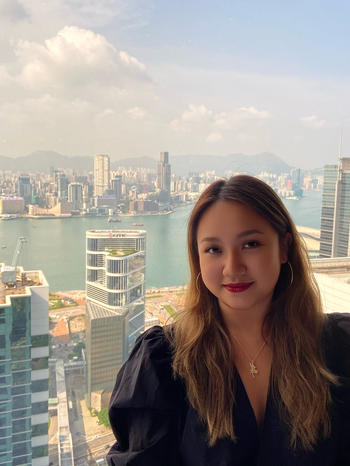Phoebe Ka Laam Ng

Fellow in the project "A Translingual Conceptual History of Chinese Worlds" (December 2022 - February 2023)
Short Biography
Phoebe Ka Laam Ng is a Global History M.A. student at Freie Universität Berlin and Humboldt-Universität zu Berlin and currently works on her M.A. thesis. She received her B.A. degree with first-class honours in European Studies, Korean Studies and Fine Arts from the University of Hong Kong in 2020. After working for two years on the editorial board, she has become the Chief Editor of "Global Histories: A student journal" in 2023 spring. With the aspiration of becoming a museum curator, her research interests lie primarily in East Asian Studies, Postcolonialism, Museology, Buddhism and Art History.
Project
The Two Macau Museums in Lisbon and Macau SAR: Examining Historical Narratives Represented in Museum Space from the Global History AspectMacau has the most extensive colonial history in Asia as a former Portuguese colony and is still significant today in facilitating Sino-Portuguese cooperation. Interestingly, there is a gap in the colonial remembrance between Macau and Portugal - that today both the Portuguese and Chinese governments deny the former colonial status of Macau. Instead, Macau was a "Chinese territory under Portuguese administration". Since the Portuguese first arrived in Macau in the sixteenth century, Macau's sovereignty has remained ambiguous. The intertwining of the Question of Macau and the official narration of Macau's history is reflected by the Macau Scientific and Cultural Centre Museum (CCCM) in Lisbon and the Museum of Macau (MdM) in the Macau SAR. Both museums were first created by the Portuguese Macau government in 1995. The CCCM was donated to the Portuguese government and opened in 1999 before the handover of Macau to China, while the MdM was inaugurated in 1998 and is now under the Macau SAR government.
Phoebe's project compares the permanent historical exhibitions in the CCCM and MdM to understand how Macau's history is represented differently between Portugal and China, and before and after the handover. By visiting the museums in person, interviewing the museum staff and studying the museums' publications and other secondary sources, she argues that the CCCM exhibition's narrative adopts a Eurocentric focus on Macau's history of science in the 16th-17th century to avoid the controversial Question of Macau. Under the research fellowship, she will extend her research about the MdM based on the resources available in Hong Kong and Macau. This case study of the two Macau Museums' historical narratives examines the construction of the transnational history of knowledge production. From a global historical perspective, the project discusses Eurocentrism and postcolonialism in museum space.
